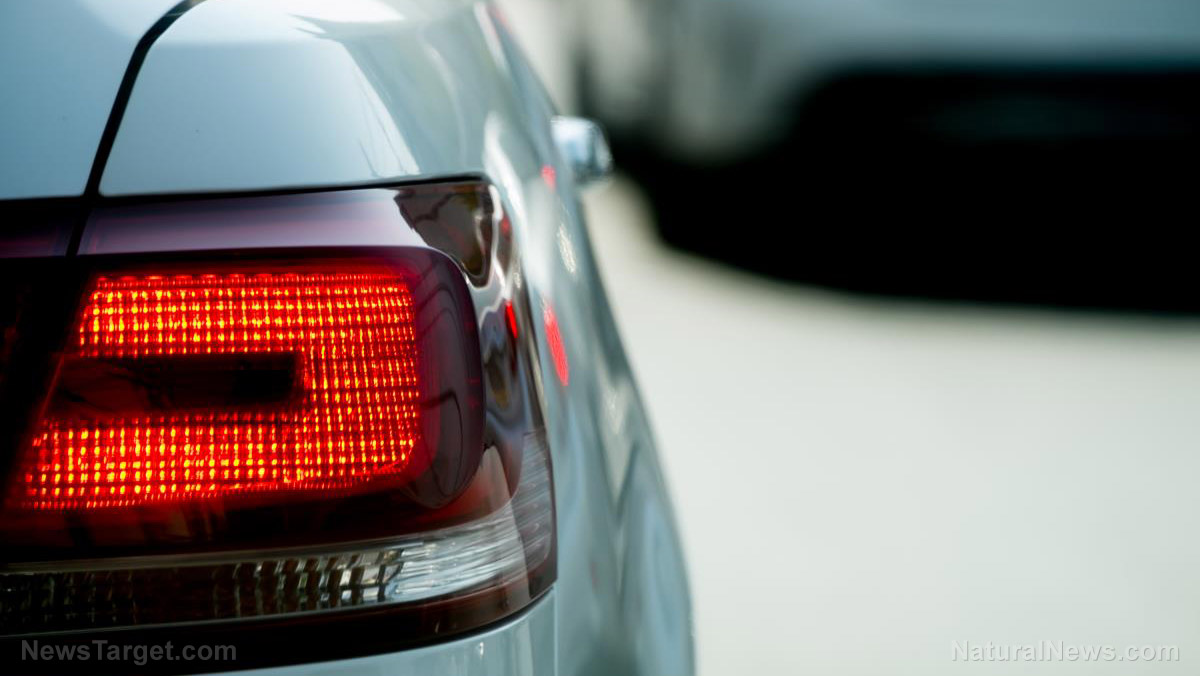 Parler
Parler Gab
Gab
- Ford recalls 273,800 Expeditions and Lincoln Navigators to address a brake line defect that could cause fluid leaks and impaired braking, increasing crash risks. Vehicles were built from April 2021 to November 2024, though Ford reports no injuries or incidents.
- Improper routing during assembly caused front brake lines to scrape against the engine’s air cleaner pipe, leading to potential cracks and fluid leakage. Vibrations from routine driving can accelerate wear, prompting a proactive fix.
- Owners will be notified by May 26; dealers will inspect brake lines using diagnostic tools and replace affected components or modify air cleaner pipes. The two-hour process uses updated clips/brackets to prevent contact; parts are available, though backlogs may occur.
- The recall tests Ford’s reliability image, as these models are long-standing bestsellers. Analysts highlight systemic quality control concerns, stressing the need for overhauled manufacturing practices amid production-speed pressures.
- Ford’s 50 recalls in 2024 (most among automakers) reflect pressure on traditional manufacturers to balance legacy operations with modern safety demands, while prioritizing transparency and mechanical oversight alongside EV/tech advancements.
Defect details: Brake line contact with engine interference threatens safety
The root cause of the issue stems from improperly routed front brake lines during manufacturing, which can scrape against the engine’s air cleaner outlet pipe. This component, positioned on the engine’s undercarriage, may wear down over time, causing cracks in the brake line and fluid leakage. NHTSA’s analysis notes the problem likely occurred when brake lines were bent during assembly, misaligning them relative to the engine housing. Engineers confirmed that even minor vibrations from typical driving—such as rough roads or prolonged use—could accelerate the wear. Ford estimates only 1% of the 273,800 vehicles are currently affected, but the defect’s potential impact on safety has drawn widespread attention. Ford spokesperson Ross Boughton stated, “Ensuring occupant safety remains our priority. We are addressing this proactively to prevent potential risks.”Recall process: Dealers inspect and repair at no cost to owners
Eligible owners will receive notification letters by May 26, directing them to Ford or Lincoln dealerships for free repairs. Technicians will inspect the front brake lines, using specialized diagnostic tools to assess wear, and replace affected parts or modify the air cleaner pipe to ensure proper spacing. The fix, expected to take two hours, involves routing replacement lines with updated clips and brackets designed to prevent contact. While Ford guarantees no cost for owners, the scale of the recall—encompassing nearly a quarter-million vehicles—raises concerns over potential repair backlogs. The automaker has urged patience, citing immediate availability of parts and prioritized appointments for impacted customers.Legacy SUVs face uncharted scrutiny
The Expedition and Navigator have long been pillars of Ford’s lineup, with the Expedition achieving the status of America’s bestselling full-size SUV for over two decades. Last year’s sales figures of 78,000 Expeditions and 15,000 Navigators underscore their enduring popularity. However, this recall marks a rare public challenge to models celebrated for their durability and performance. Automotive analyst Michelle Krebs noted, “While recalls are common, this scale underscores systemic quality control flaws that demand urgent overhaul.” Critics argue the defect reflects challenges in balancing production speed with adherence to engineering protocols at Ford’s assembly plants.Industry evolution and Ford’s safety commitments
Ford’s aggressive 50 recalls in 2024—the highest among automakers—spotlights growing pressure on traditional manufacturers to balance established production practices with modern safety standards. Despite the recalls, Ford’s proactive approach aligns with evolving consumer expectations for transparency. Analysts suggest the automaker’s investment in autonomous systems and EVs must be paired with tighter oversight of critical mechanical systems. As consumers demand flawless execution in both legacy and cutting-edge vehicles, this recall tests Ford’s ability to uphold its reputation for reliability. Owners are encouraged to register their vehicles with NHTSA (recalls.gov) or contact Ford at 1-866-436-7332 (Lincoln: 1-888-253-1910) for updates. The recall reinforces the industrywide imperative: even iconic models must prove safety in an era of constant technological advancement. Sources for this article include: 100percentfedup.com FoxNews.com Yahoo.comThe 20 deadliest sugar-loaded foods and how to replace them before they kill you
By Lance D Johnson // Share
Doomsday bunker and AGI “rapture”: Inside OpenAI’s existential tightrope
By Willow Tohi // Share
Fifth round of Washington-Tehran nuclear talks make progress, but report no breakthrough
By Ramon Tomey // Share
House Ways and Means Committee considers universal de minimis ban amid U.S.-China trade war
By Laura Harris // Share
California expands digital ID initiatives with new pilots and partnerships
By Laura Harris // Share
Governments continue to obscure COVID-19 vaccine data amid rising concerns over excess deaths
By patricklewis // Share
Tech giant Microsoft backs EXTINCTION with its support of carbon capture programs
By ramontomeydw // Share
Germany to resume arms exports to Israel despite repeated ceasefire violations
By isabelle // Share










